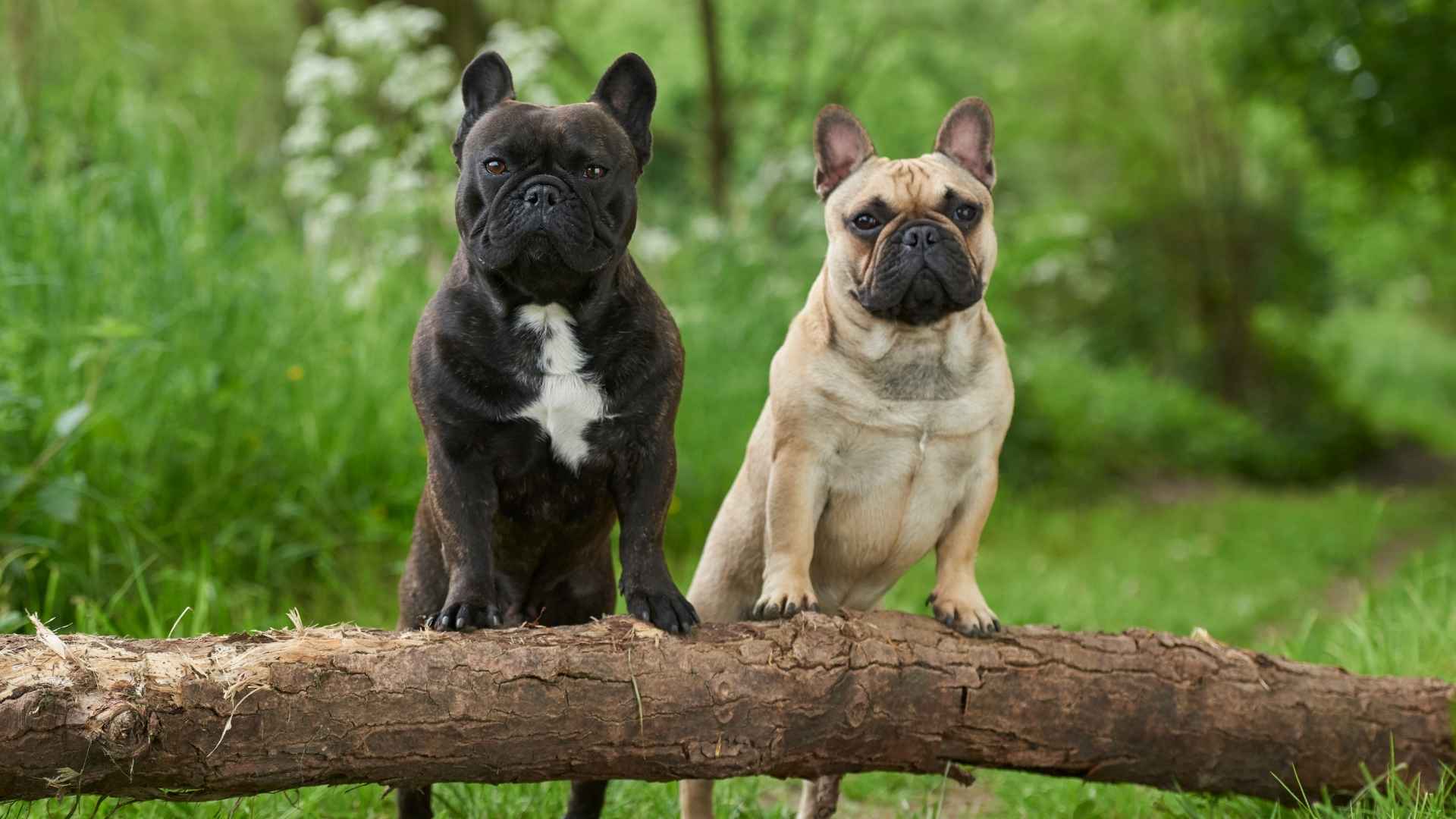Ever wish your pup came with a volume dial? If loud barking has you hesitating to bring a dog home—or if your neighbours already give you the side-eye—you’re in the right place. Some dogs are just naturally quieter, making them ideal for apartment living, work-from-home setups, or just keeping the peace.
Now, that doesn’t mean they’re boring or antisocial. Quiet dogs can still be playful, affectionate, and full of personality—they just don’t feel the need to announce every squirrel or passing car. Sounds dreamy, right?
But here’s the thing: low barking doesn’t always mean low energy. Some of these dogs are calm loungers, while others are sporty sidekicks. The key is knowing what kind of quiet you’re looking for.
So, ready to meet the breeds that won’t wake the baby, disturb the neighbours, or interrupt your Zoom calls? Let’s dig into the best low-barking dog breeds out there!
Low Barking Dog Breeds
1. Afghan Hound
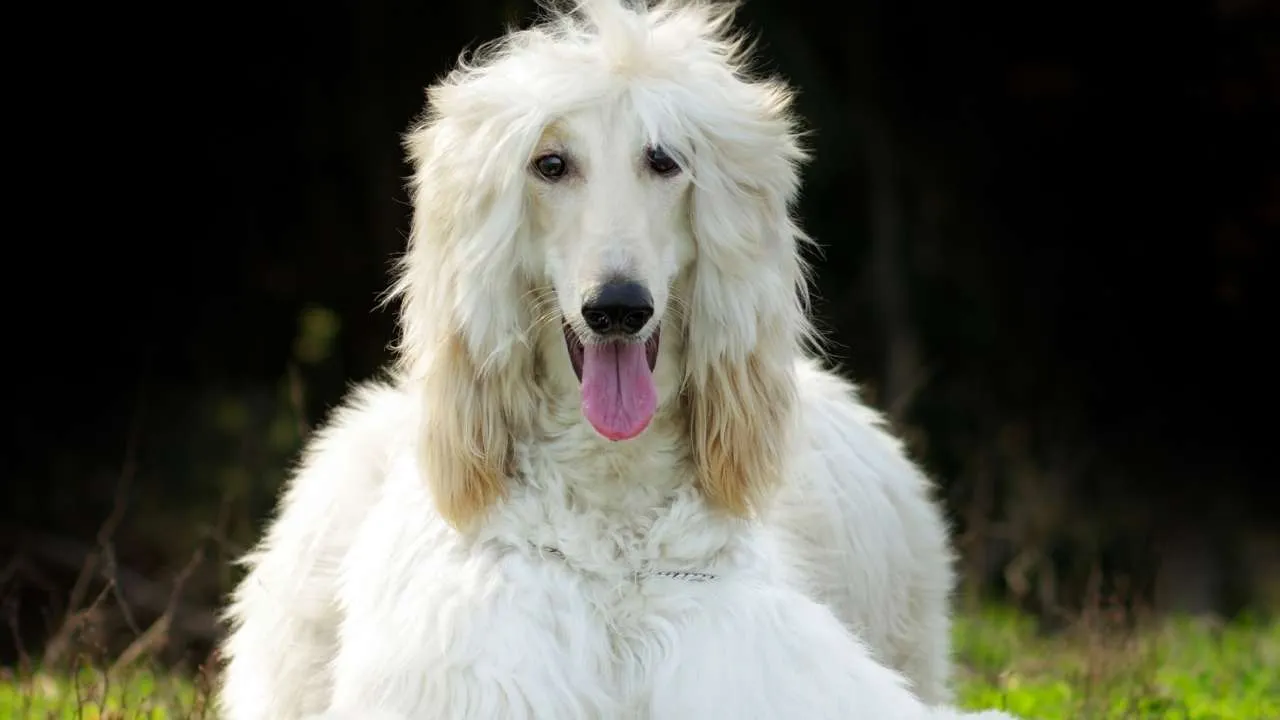
There’s something about Afghan Hounds that makes you do a double-take. Is it their silky, flowing coat? That graceful stride? Maybe. This breed isn’t much for barking unless it’s really necessary. If you’re looking for a low-barking dog that doesn’t come with constant noise, the Afghan Hound might be your kind of vibe.
These dogs are pretty independent thinkers, and they are even strong-willed, says Hill’s Pet Nutrition. They’re not the type to bark at every doorbell ring or passing shadow. In fact, if you’re after a guard dog breed, you might want to look elsewhere. Afghans are more likely to give you side-eye than sound the alarm.
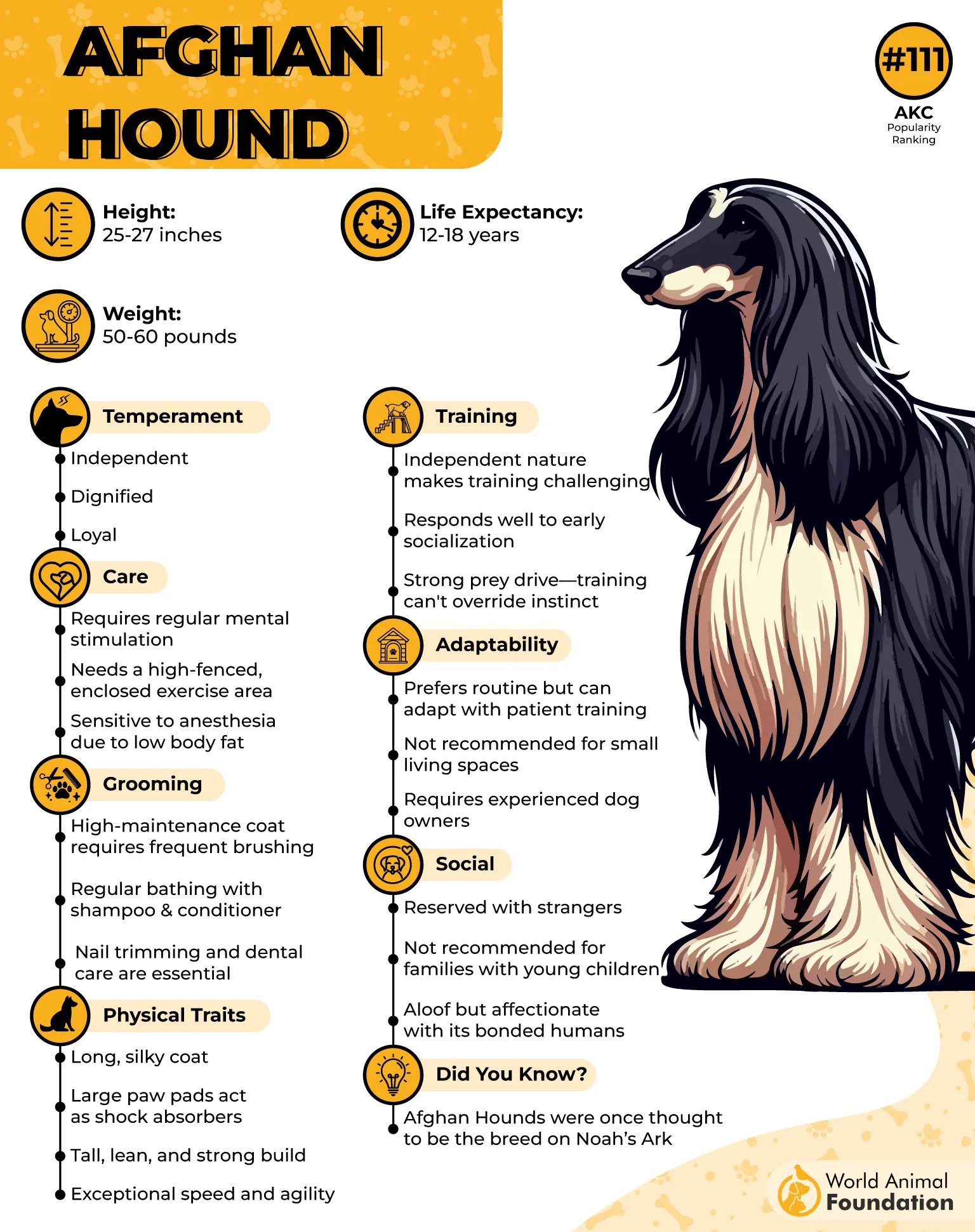
What really sets them apart is how cat-like they can be. They enjoy their own space, they’re picky about affection, and when they do want attention, it’s on their terms. So, if you’re into chill dogs with a strong sense of self, this quiet beauty might be a match made in heaven.
They’re also sensitive creatures, emotionally speaking. Yelling, loud environments, or chaotic households can stress them out. So their quiet demeanor isn’t just physical—it’s a reflection of their personality. This breed thrives in calm homes with routines they can trust.
You’ll want to brush them regularly (like, really regularly) to keep their coat from turning into a shaggy mess. But hey, grooming time can actually be a bonding experience. Just don’t expect them to bark out of joy when they see the brush—remember, they’re too classy for that.
Fun fact: Afghan Hounds are one of the oldest dog breeds in the world—some historians say they date back thousands of years. Ancient, elegant, and low-key quiet? Talk about the whole package.
2. Basenji
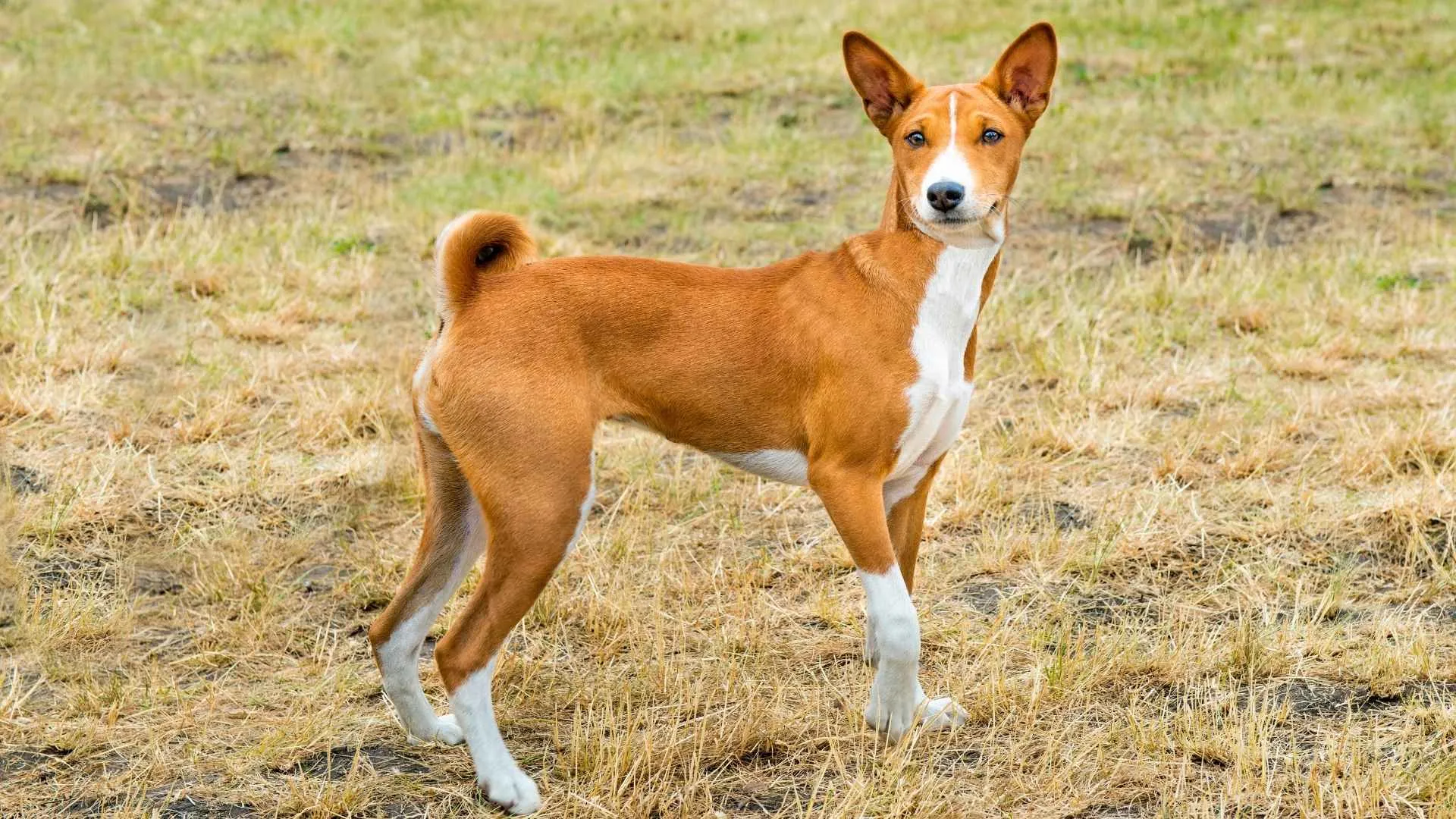
The Basenji is famous for not barking at all—like, literally. Instead, they make a strange, yodel-like sound called a “baroo.” It’s weird, it’s funny, and yes—it’s real. But barking? Not their thing. That alone makes them a dream for folks who crave silence but still want a four-legged partner-in-crime.
Now, don’t assume quiet means calm. These dogs are little energy rockets wrapped in sleek fur. They were originally bred to hunt in Central Africa, and that instinct still runs deep. So while they won’t bark at squirrels, they’ll definitely chase them. No yard? Better have your sneakers ready.
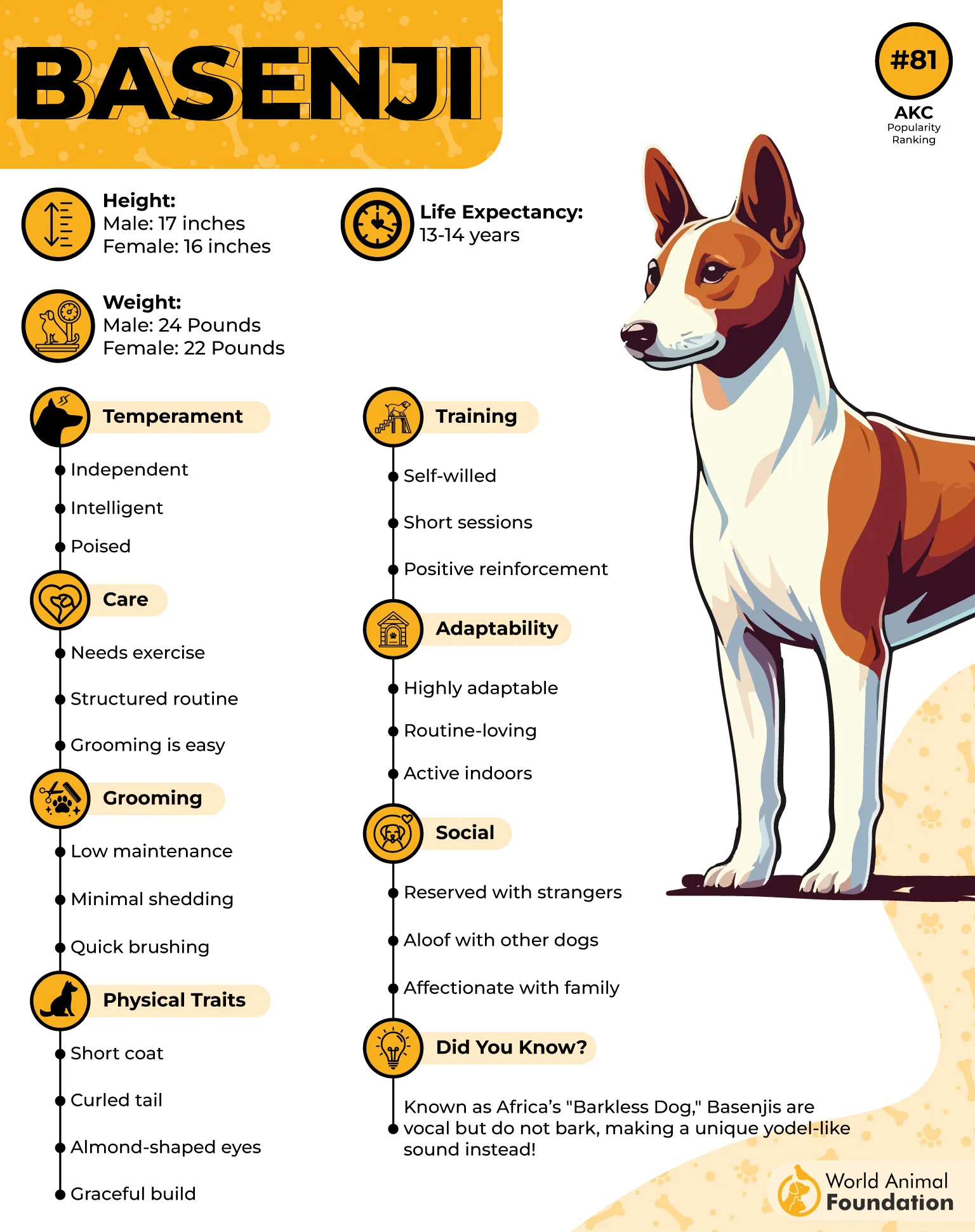
One of the quirkiest things about Basenjis? They clean themselves like cats. No joke—they lick their paws and groom their coat. It’s one of the reasons they’re often recommended for neat freaks or allergy-sensitive homes. No mess, no smell, and no barking? Sounds too good to be true, right?
But here’s the catch: they’re super intelligent… and just as mischievous, says Orvis. Basenjis know exactly how to get into things they shouldn’t, and they do it with a straight face. They’ll open drawers, scale counters, and disappear with your socks—all without making a sound. Sneaky? 100%. Boring? Never.
Basenjis are also incredibly alert. Just because they’re quiet doesn’t mean they’re unaware. They notice everything—movements, sounds, people coming and going. You might not hear them warn you, but their watchful gaze says it all. Silent guard dog? Kind of.
3. Chow Chow
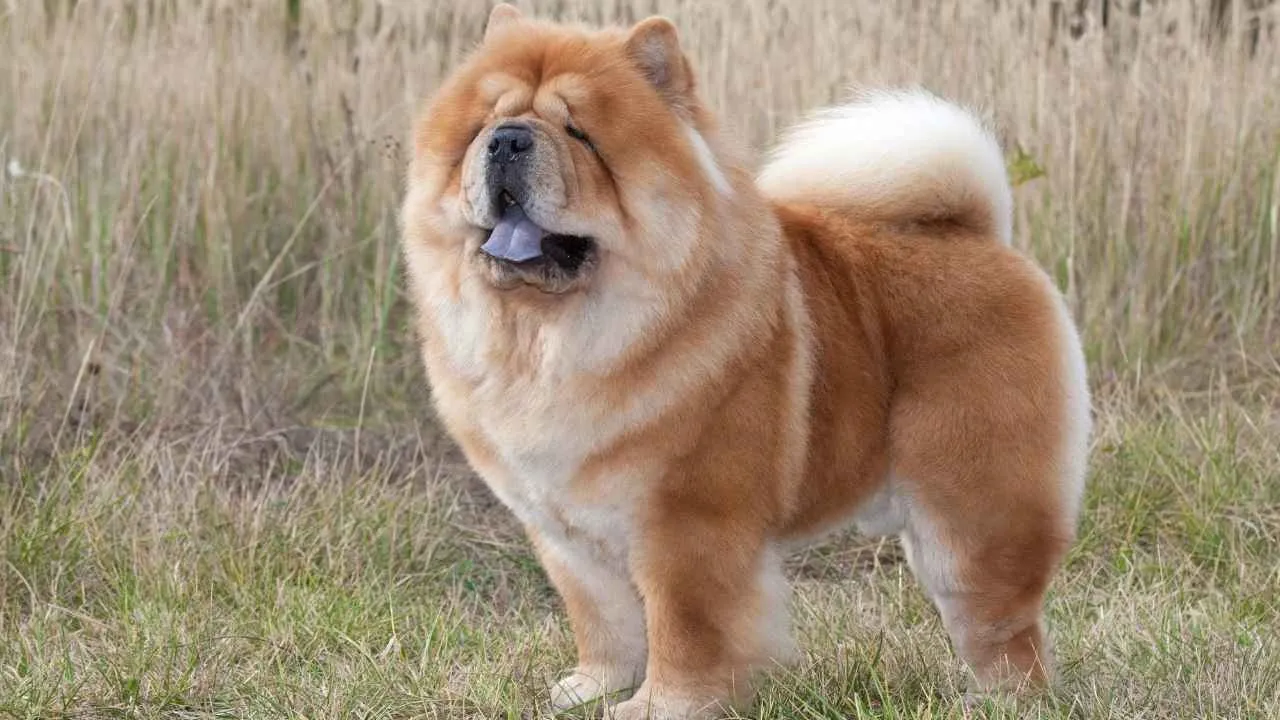
Chow Chow is a dog that acts like royalty… and expects you to treat them accordingly. This breed isn’t just low-barking—they’re low-everything when it comes to drama. They don’t yap, whine, or fuss. If they could roll their eyes at noisy dogs, they probably would.
Don’t expect a social butterfly. Chow Chows are famously reserved—think of them as the strong, silent type. They’re incredibly loyal and devoted to their family, but they’re not overly expressive about it. So if you want a dog who showers you with kisses and barks with excitement? Yeah… this isn’t the one.
One reason they rarely bark is that they simply don’t see the point. These dogs are independent thinkers, not prone to reacting unless something really grabs their attention. Strangers, doorbells, delivery guys—they might get a low grumble, but that’s about it.
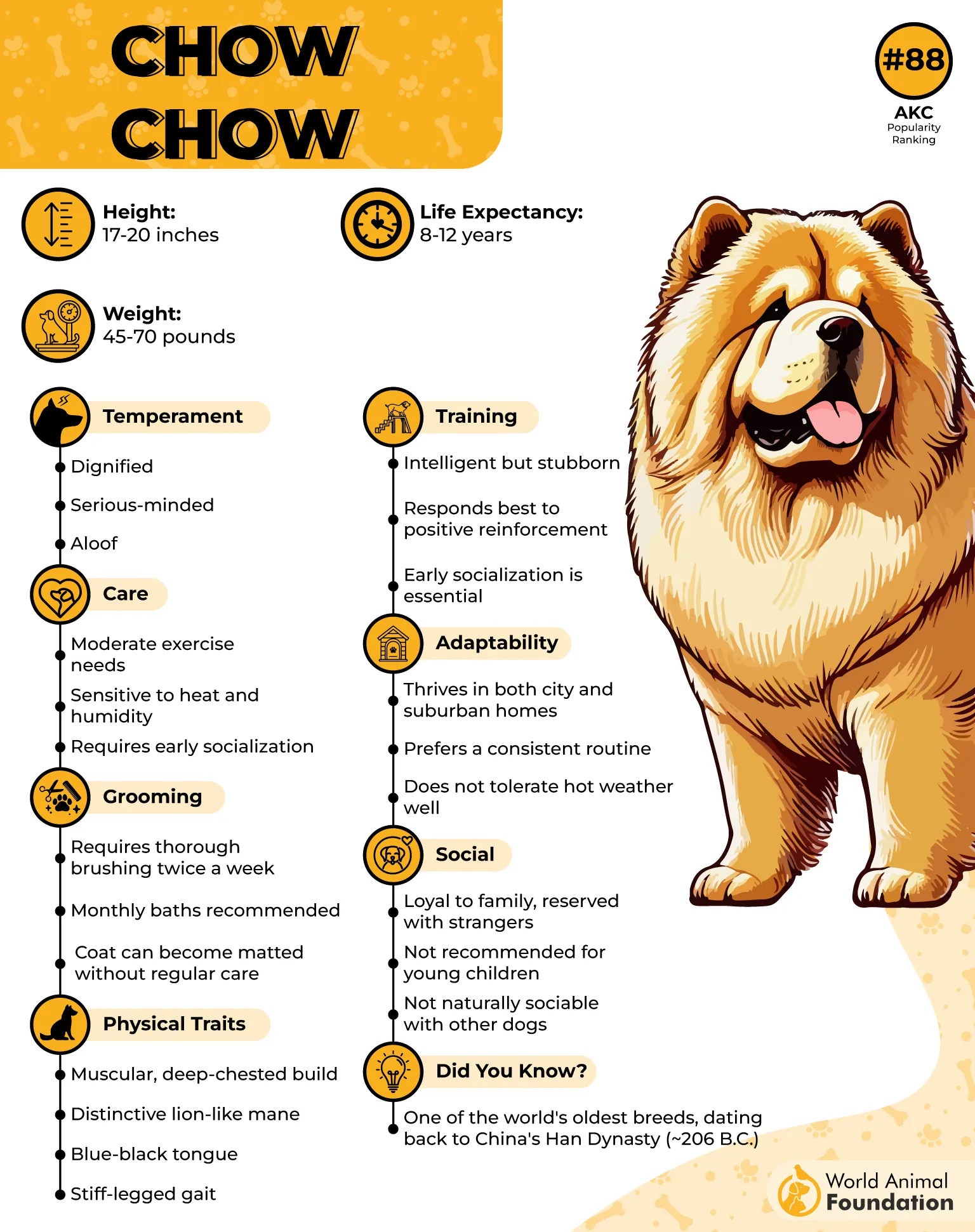
Their aloofness isn’t a flaw—it’s just how they’re wired. Chows were bred to guard palaces in ancient China, so being calm and observant was part of the job, says AKC. They’re watching, thinking, analyzing—but silently. Ever get the feeling a dog’s judging your life choices? It might be a Chow.
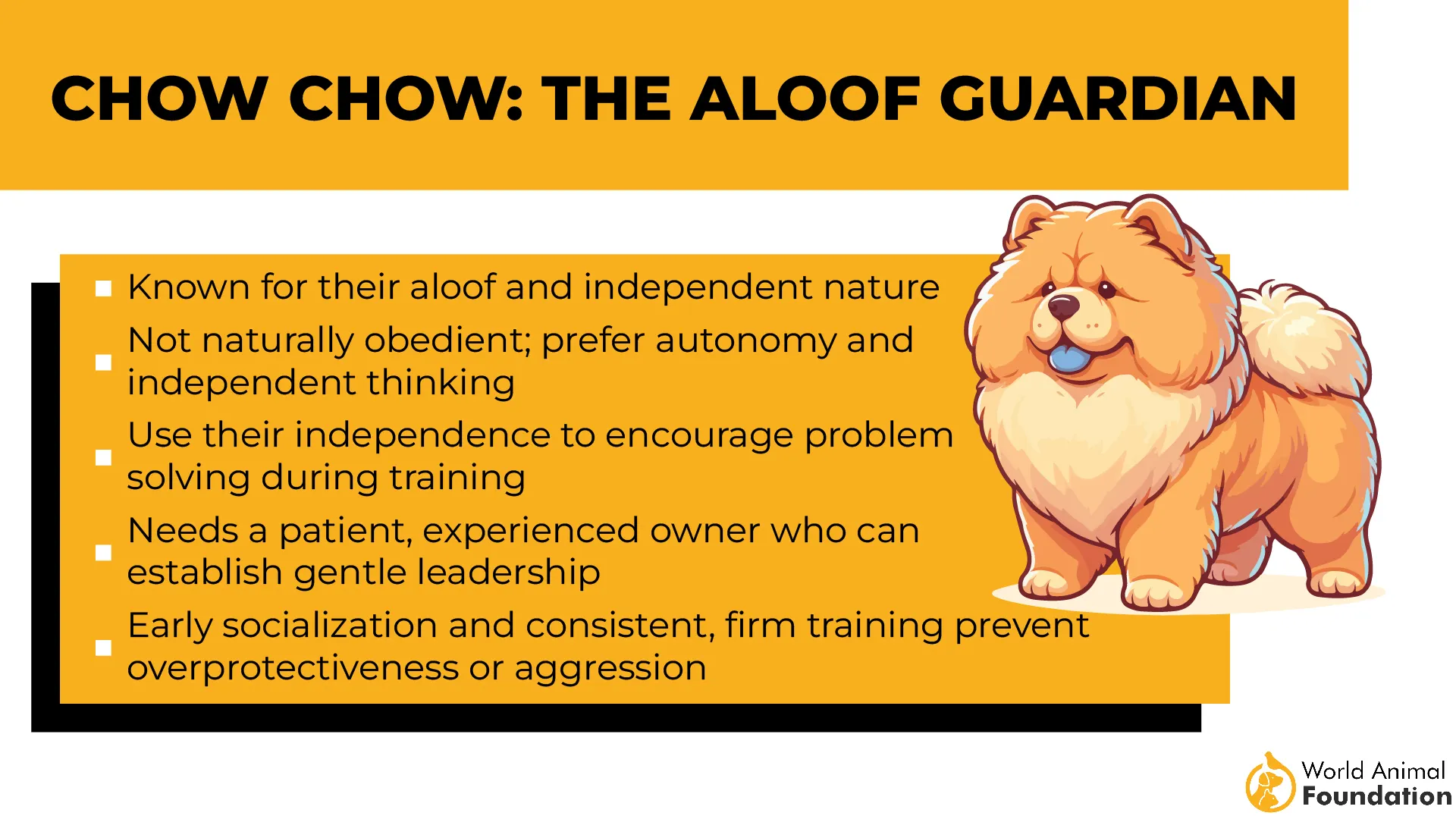
Exercise-wise, they’re not hyper dogs. A couple of solid walks a day and they’re good. They’re built like little bears—sturdy, powerful, and not fans of overexertion. Which also makes them great for low-key homes that value peace and quiet over zoomies and chaos.
4. Newfoundland
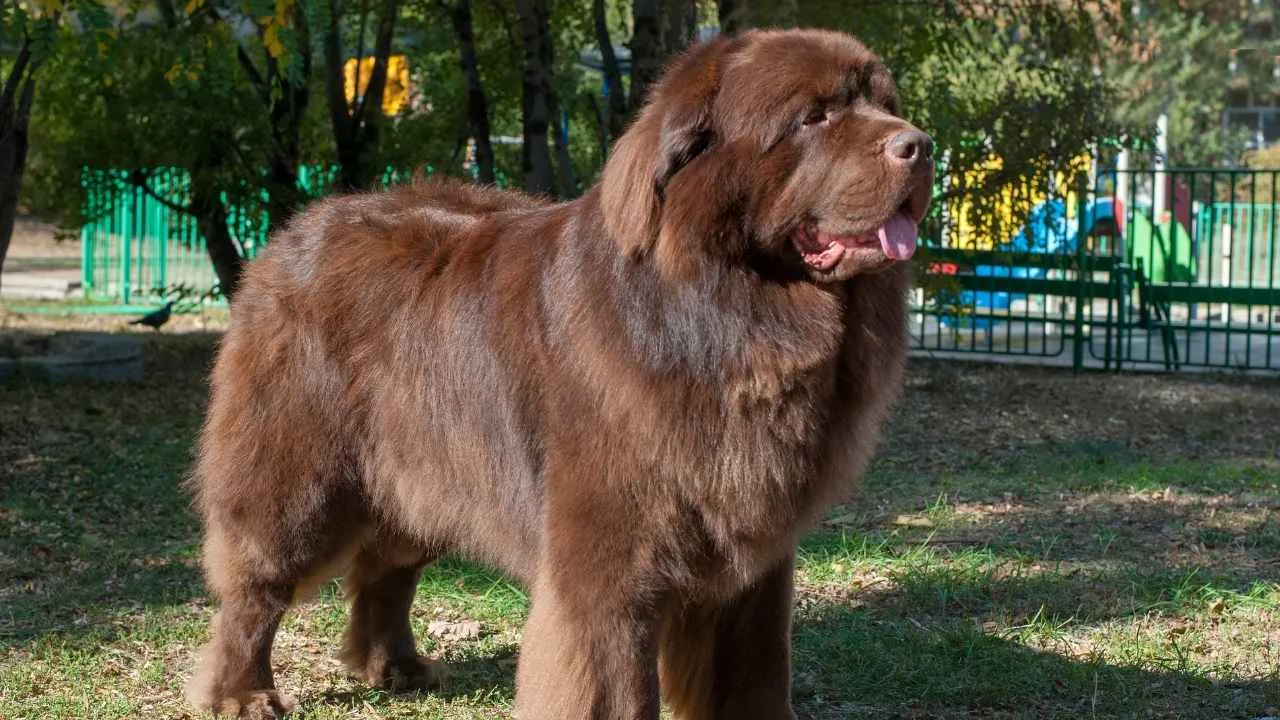
Imagine a dog the size of a small bear… now imagine that dog choosing cuddles over chaos. That’s the Newfoundland. Despite their massive frame, these dogs are incredibly soft-spoken. They’re not barkers—they’re more likely to gently nudge you with their nose than alert the whole neighbourhood.
Their temperament is one of the main reasons that they are so quiet dogs. They’re naturally mellow, steady, and unfazed by distractions. Someone knocks at the door? Meh. A squirrel darts by? Maybe a glance, but definitely no loud outbursts. Drama? Not their style.
They were originally bred to work on fishing boats in icy Canadian waters—rescuing people, pulling nets, and doing heavy labor. So, yeah… barking at every passing leaf just wasn’t part of the job description. These dogs are focused, dependable, and patient to the core.
Training a Newfoundland is typically a breeze because they’re eager to please, but they need gentle and positive guidance, says AKC. Harsh tones can actually make them shut down. Think kind leadership, clear boundaries, and lots of praise. And don’t be surprised if they never use their voice unless something’s really off.
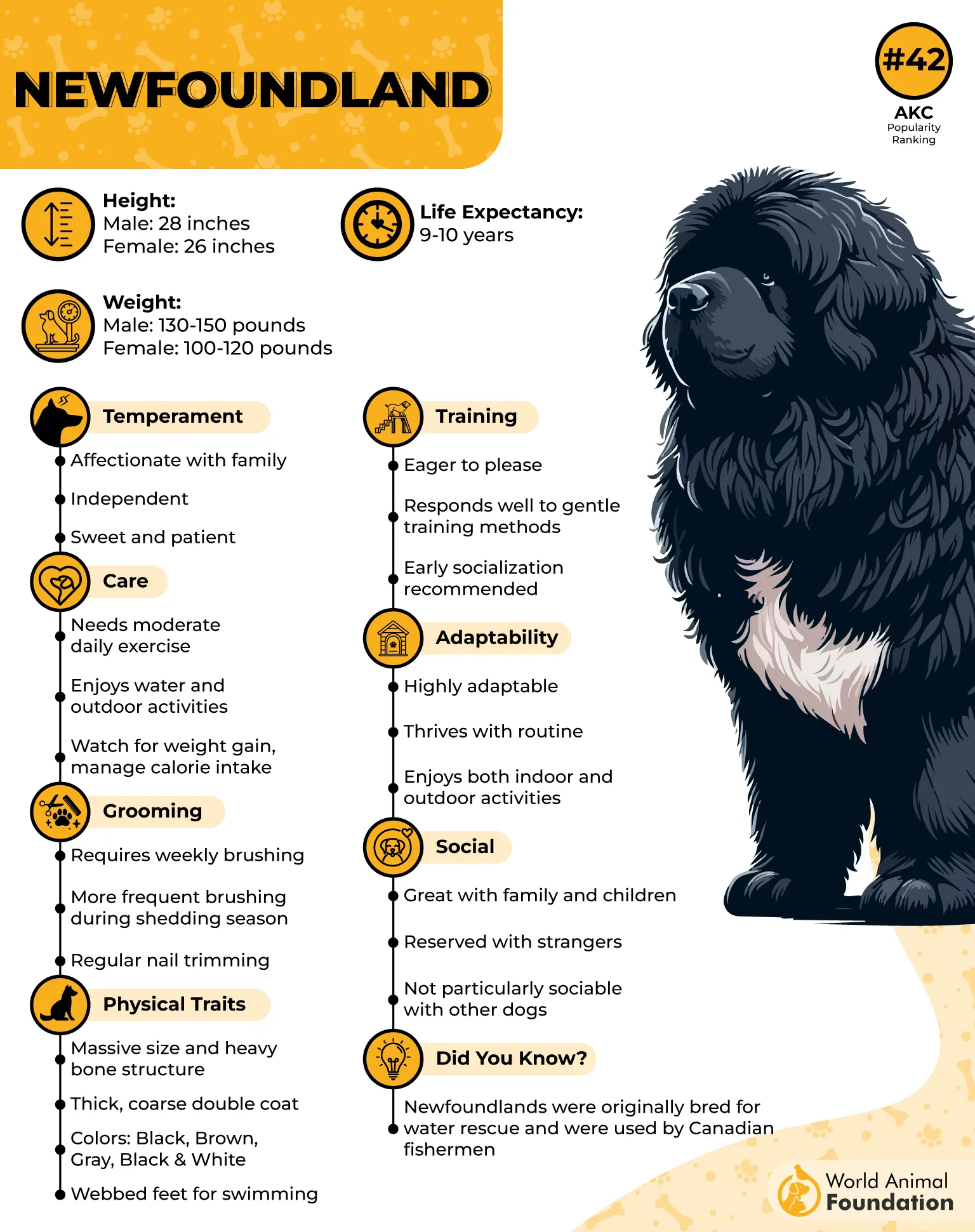
Their size does come with some upkeep: drool, shedding, and space needs are real. But when it comes to temperament? They’re big therapy dogs disguised as house pets. If you’re looking for a calm, non-barking companion to match your chill lifestyle, this is it.
5. Shiba Inu
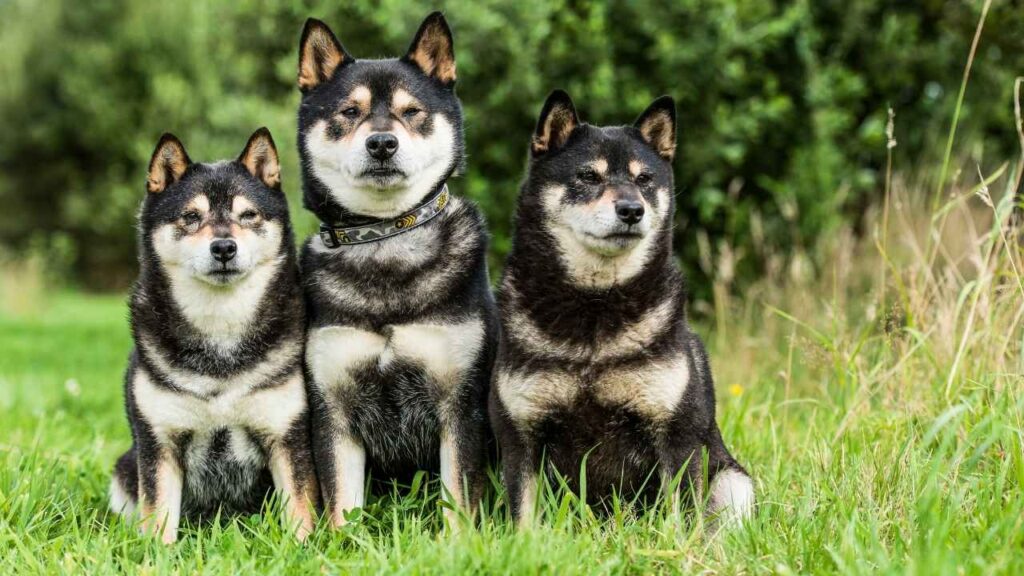
At first glance, the Shiba Inu doesn’t seem like your typical “quiet breed.” They’re alert, expressive, and full of personality. But they’re not frequent barkers. Instead, they communicate with subtle cues, body language, and the occasional iconic Shiba side-eye. It’s like living with a furry minimalist.
Shibas are natural introverts, but are alert, says Petplan. They won’t go off at every sound outside the window. Unless it’s something truly important, like a stranger approaching your door, they usually stay completely silent. And even then, this hunting dog breed is more likely to give a low growl than a full-on bark.
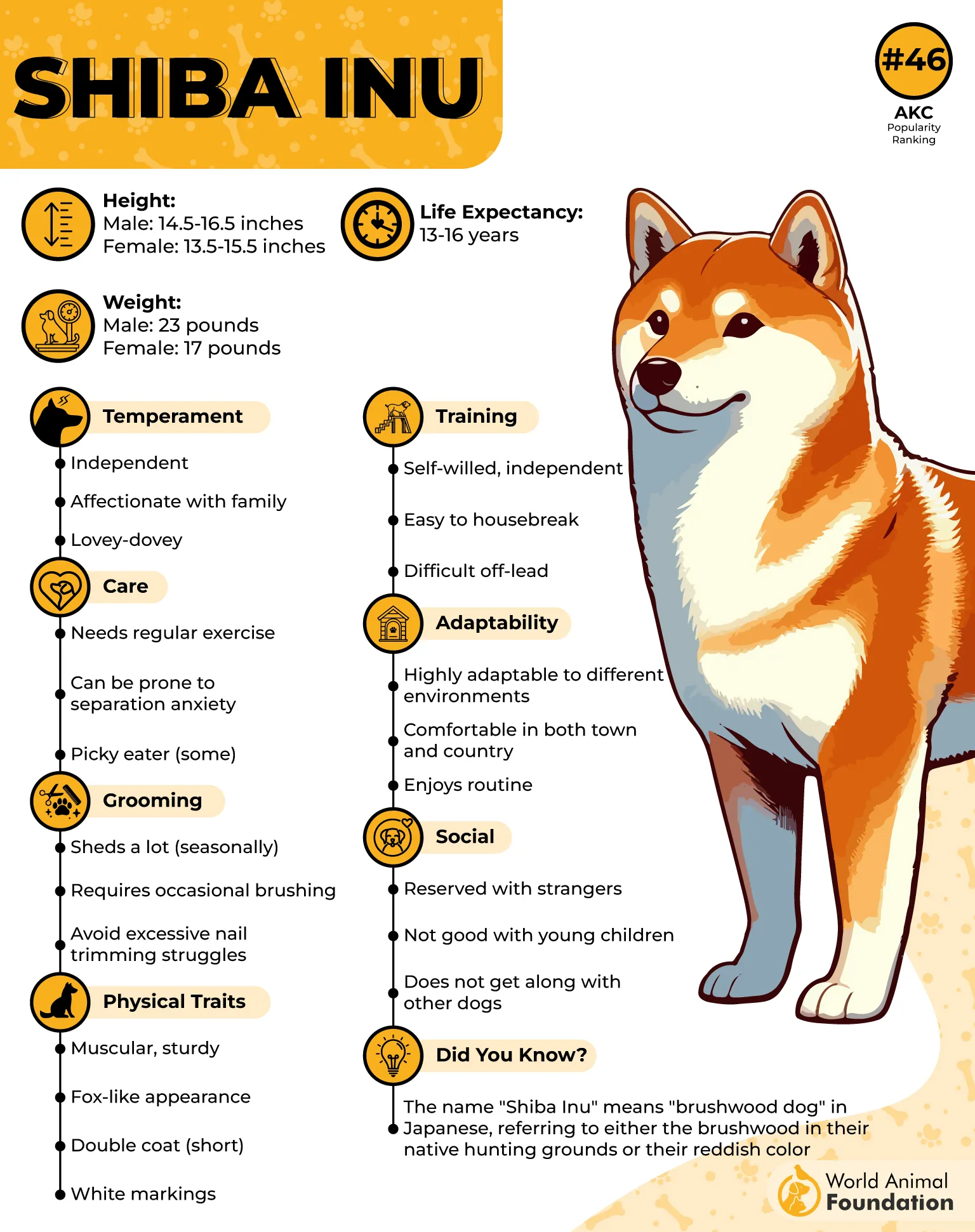
Their vocal control also comes from their independent streak. Shibas don’t bark to please you—or anyone. They’re confident and self-assured, which means they won’t yap for treats, affection, or approval. You won’t catch them performing a bark-a-thon just because you walked in the door.
But don’t confuse “quiet” with “dull.” Shibas are incredibly expressive in other ways. From their famous Shiba smile to their exaggerated “play bows,” these dogs are quirky communicators. And when they do decide to make noise, usually during nail trims or vet visits, it’s not barking. It’s a full-blown Shiba scream, a wild, high-pitched sound that’s honestly unforgettable.
Shibas also have a strong prey drive, so silent stalking is more their style than alert barking. They’ll spot a bird or squirrel before you do, lock eyes, and go full ninja—no growling, no barking, just laser focus. It’s like watching a dog with the soul of a fox and the mindset of a hunter.
6. Whippet
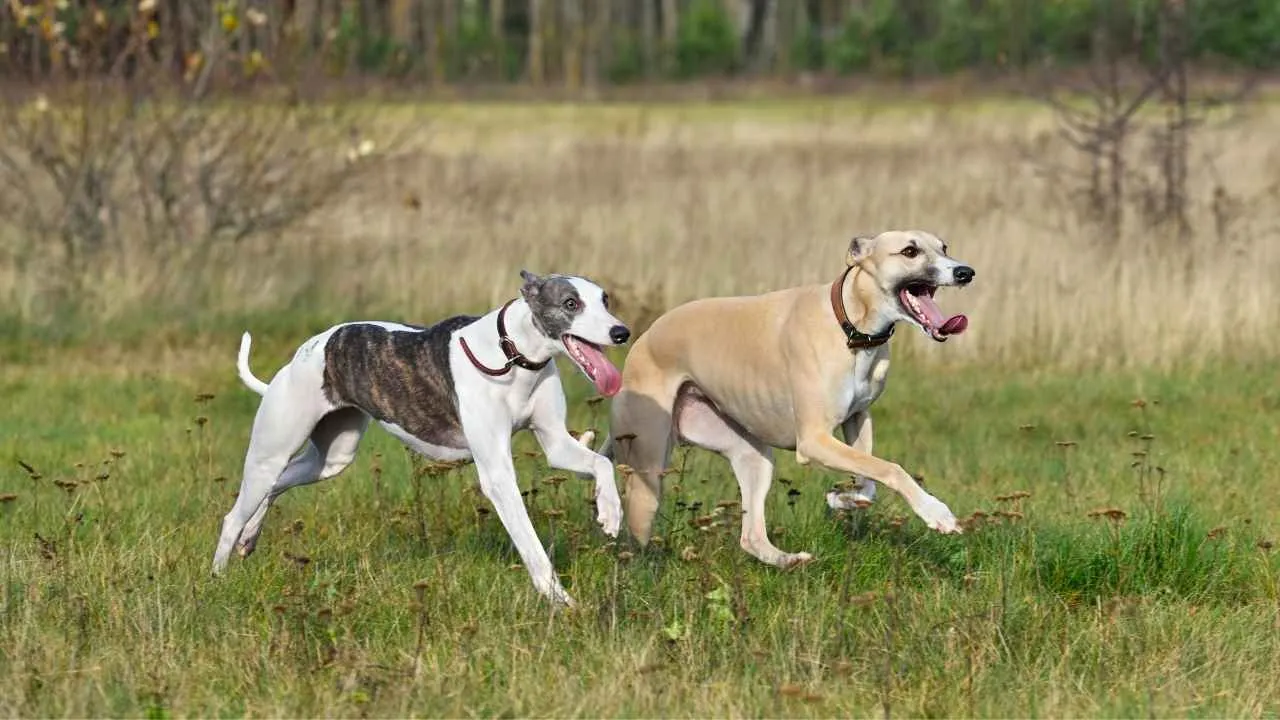
Whippets are natural couch potatoes when they’re not zooming at lightning speed. Once they’ve had their daily dose of running, it’s nap o’clock—and that peaceful vibe means no barking fits over doorbells, delivery trucks, or passing squirrels. Their chill energy is a chef’s kiss for anyone craving a drama-free dog.
They’re emotionally intuitive, too. PDSA states that Whippets are gentle by nature and get easily startled by raised voices or tension. Because they’re so sensitive, they don’t raise their own voice unless something is seriously wrong. You could hear a pin drop next to a Whippet… and they wouldn’t flinch, let alone bark.
Unlike some breeds that bark to communicate every tiny mood shift, Whippets prefer body language. A tail flick here, an ear twitch there—they’re subtle, like the dog version of texting instead of calling. Want a companion that doesn’t shout their feelings 24/7? This is your pup.
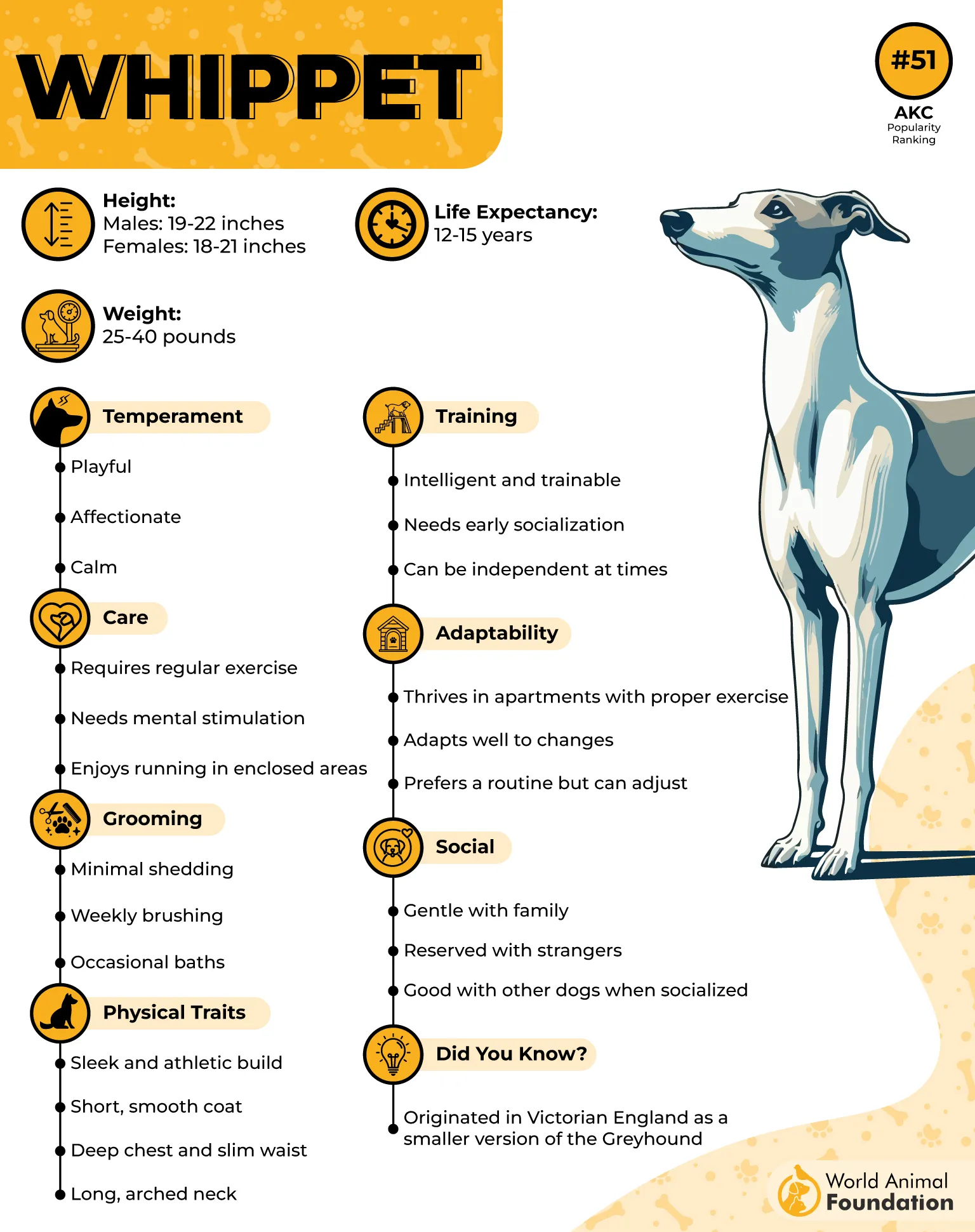
Whippets were originally bred for hunting small game by sight, not sound. They didn’t need to bark—they needed to sprint, chase, and catch without alerting the prey. That hunting history still shows today in how quietly they move through life. Silent but focused, Whippets are quiet as a whisper.
Even playtime with Whippets is surprisingly serene. They’ll zip across the yard like they’re late for a rocket launch, then plop down beside you with the grace of a ballerina. And guess what? Still no barking. Just heavy breathing and satisfied sighs.
7. Cavalier King Charles Spaniel
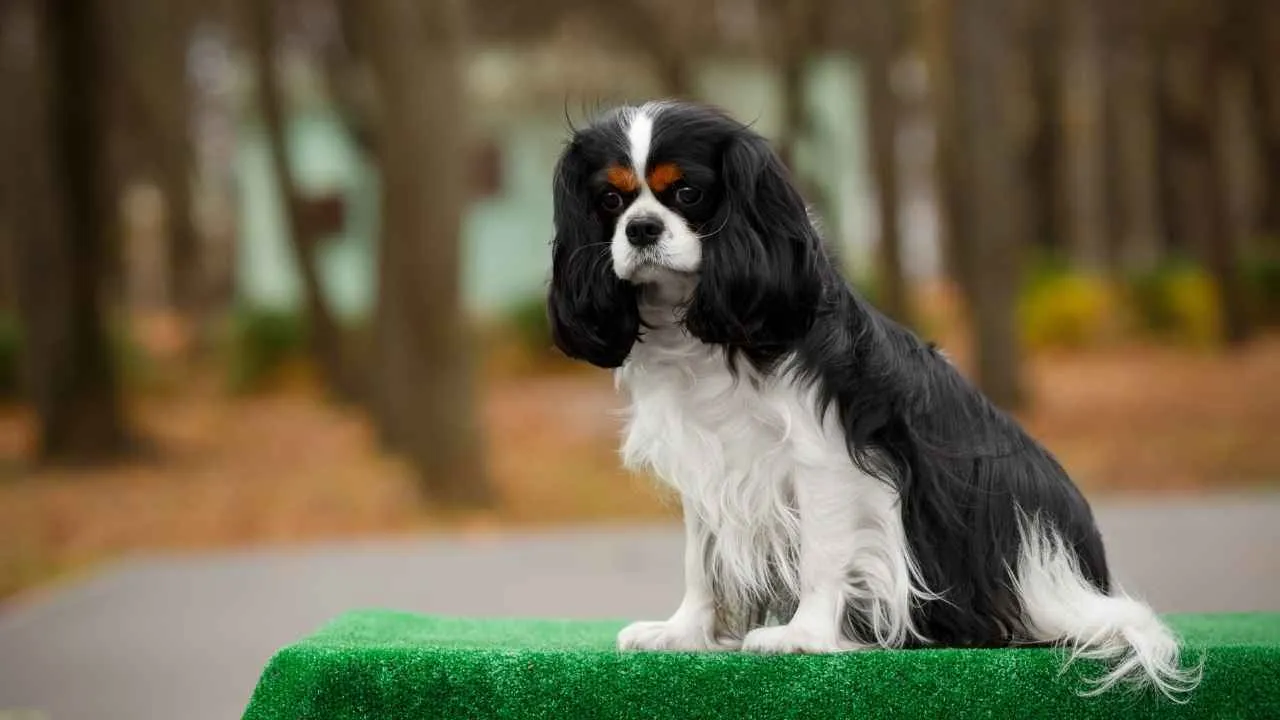
Despite their noble name, Cavaliers aren’t the dramatic type. These dogs don’t bark just to hear their own voice—they’re far too polite for that. In fact, many owners are surprised by how little noise they make. It’s like they took an etiquette class before moving in.
Cavaliers are incredibly people-oriented. They’d rather follow you room to room in complete silence than raise a fuss. Need a companion who’s glued to your side without a soundtrack of constant yaps? This is your dog. How often do you get clingy and quiet in one package?
They’re also highly adaptable. Whether you live in a buzzing city apartment or a calm country home, they know when to stay chill. Unlike high-strung breeds that bark at every sound outside the window, Cavaliers tend to just… glance and move on. Nothing to prove, nothing to shout about.
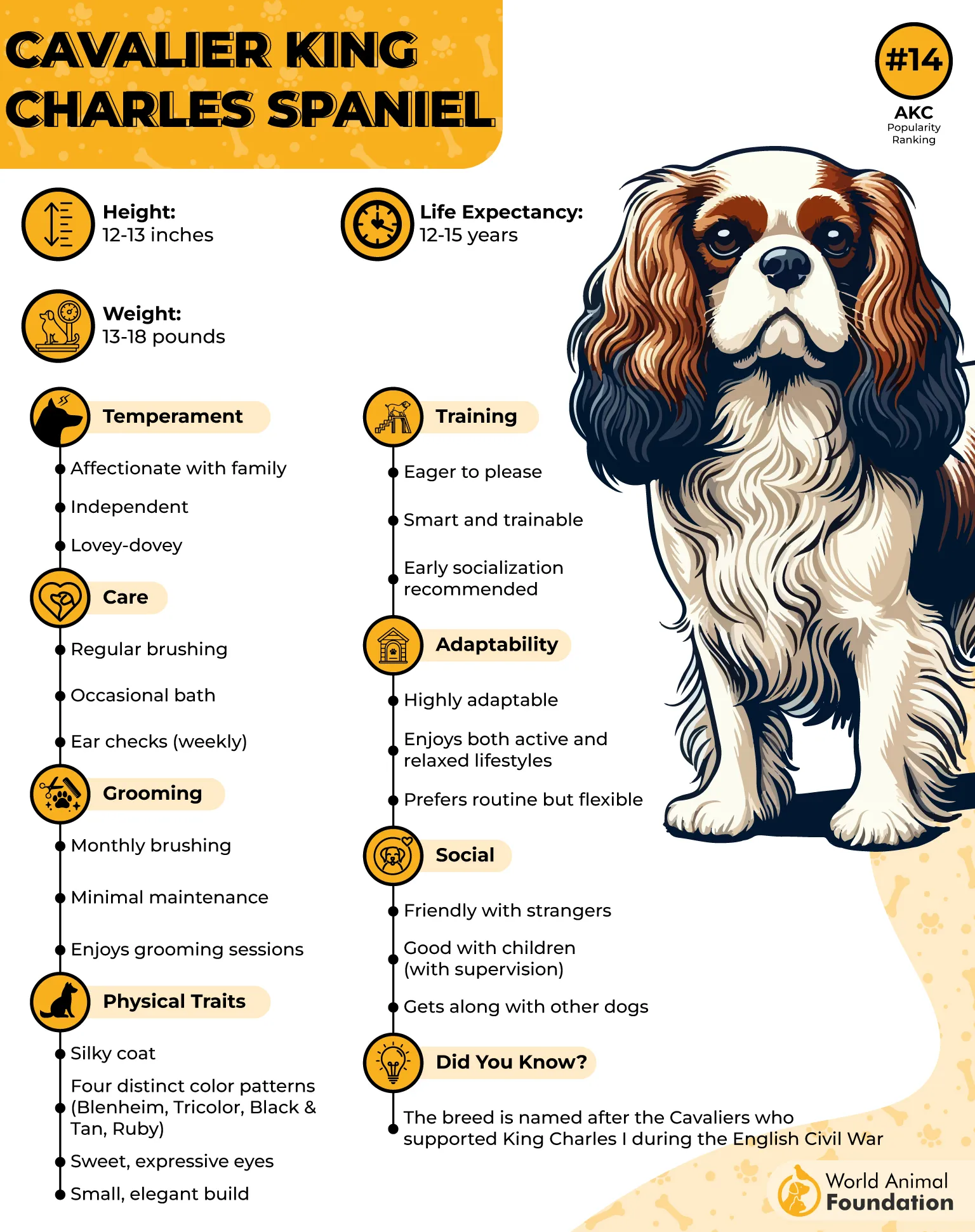
According to PetMD, their calm nature makes them fantastic with kids and seniors. No sudden outbursts, no aggressive barking during play. Even when excited, they express themselves with tail wags and happy eyes rather than loud vocals. It’s all charm—zero chaos.
Bred as companion dogs for European aristocrats, Cavaliers were literally designed to lounge in laps, not patrol the palace. So while some breeds are all about guarding, barking, and chasing shadows, these pups are more into cozy snuggles and keeping the peace. You might even forget they can bark.
8. French Bulldog
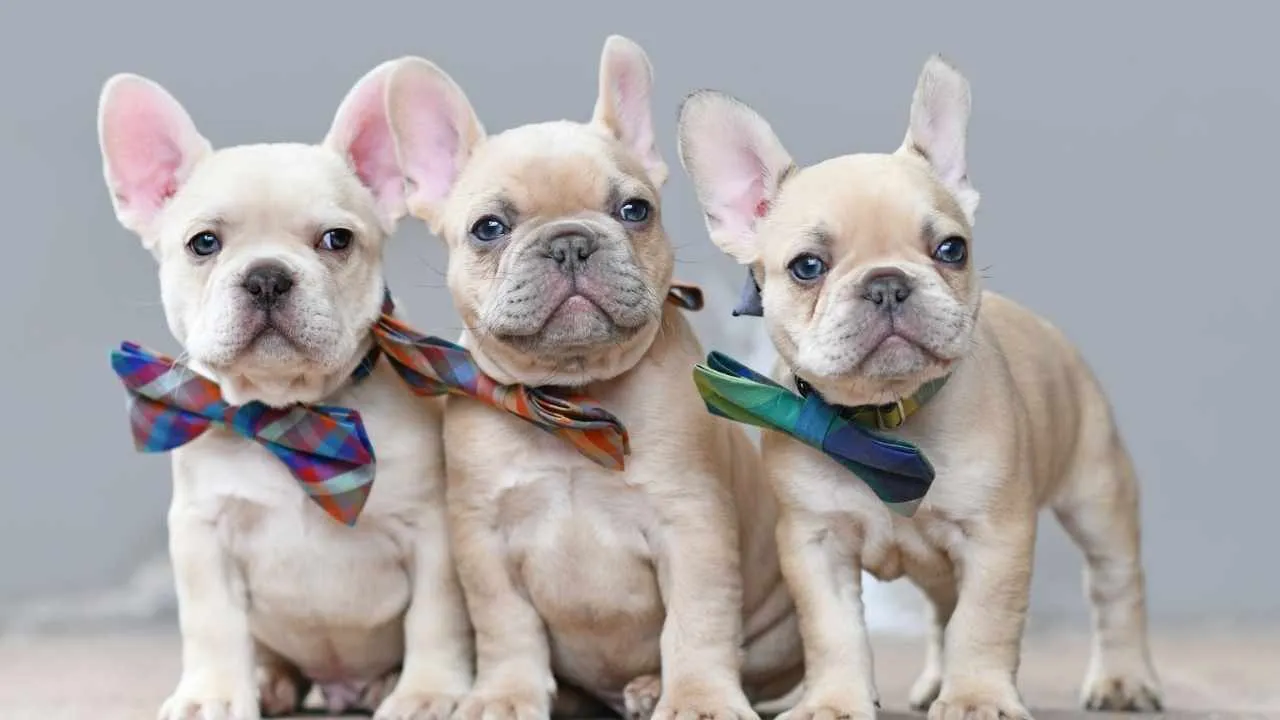
Frenchies are natural entertainers—but here’s the kicker—they don’t use barking to steal the spotlight. These pups rely on facial expressions, grunts, and pure goofiness to get your attention. Barking? That’s just not their vibe.
One of the biggest reasons they’re low barkers is their laid-back personality. French Bulldogs are lovers, not fighters. They’re chill with strangers, cool with noises, and totally unbothered by the neighbor’s dog losing its mind next door. Talk about unflappable.
They’re also super people-oriented. These dogs bond hard with their humans, but they’re not the type to whine or bark if you leave the room. Instead, they’ll just wait quietly, often in the weirdest sleeping position you’ve ever seen. (Upside down with legs in the air? Classic Frenchie.)
Despite being quiet, they’re full of personality. Instead of barking, Frenchies use an entire repertoire of snorts, grumbles, and weird little squeaks. They’ll stare at you like they’re plotting something, then suddenly let out a snore that sounds like a tiny motorcycle.
Their low energy level plays a role too. Frenchies aren’t hyper watchdogs who alert you to every falling leaf. They’ll maybe perk up an ear, but unless it’s food-related or truly alarming, they’re not going to raise their voice. They’re observers, not narrators.
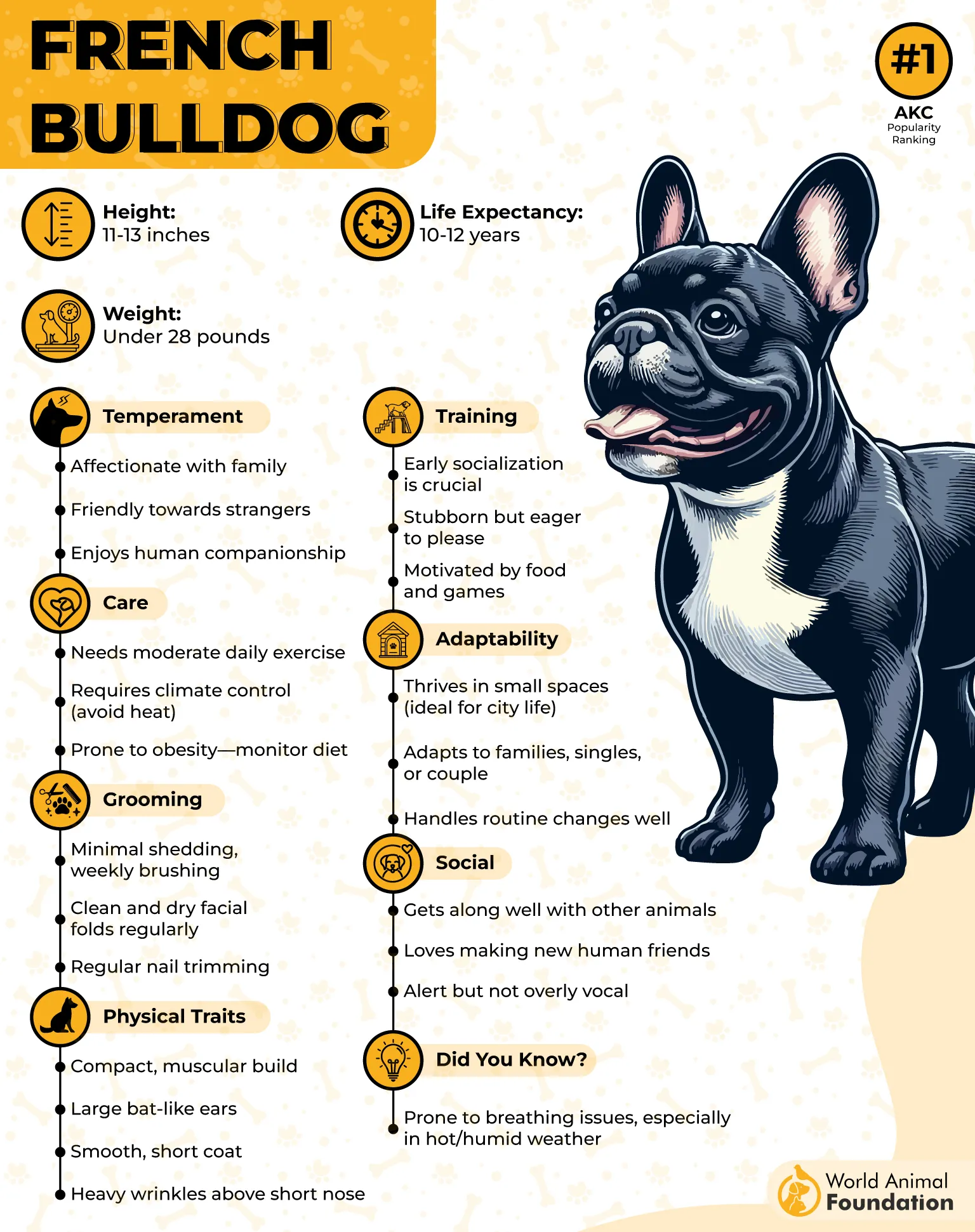
Training is usually straightforward since Frenchies are food-motivated (understatement of the year). They respond best to short, fun sessions, and because they’re not prone to excessive barking, you’re starting from a pretty peaceful baseline.
9. Bernese Mountain Dog
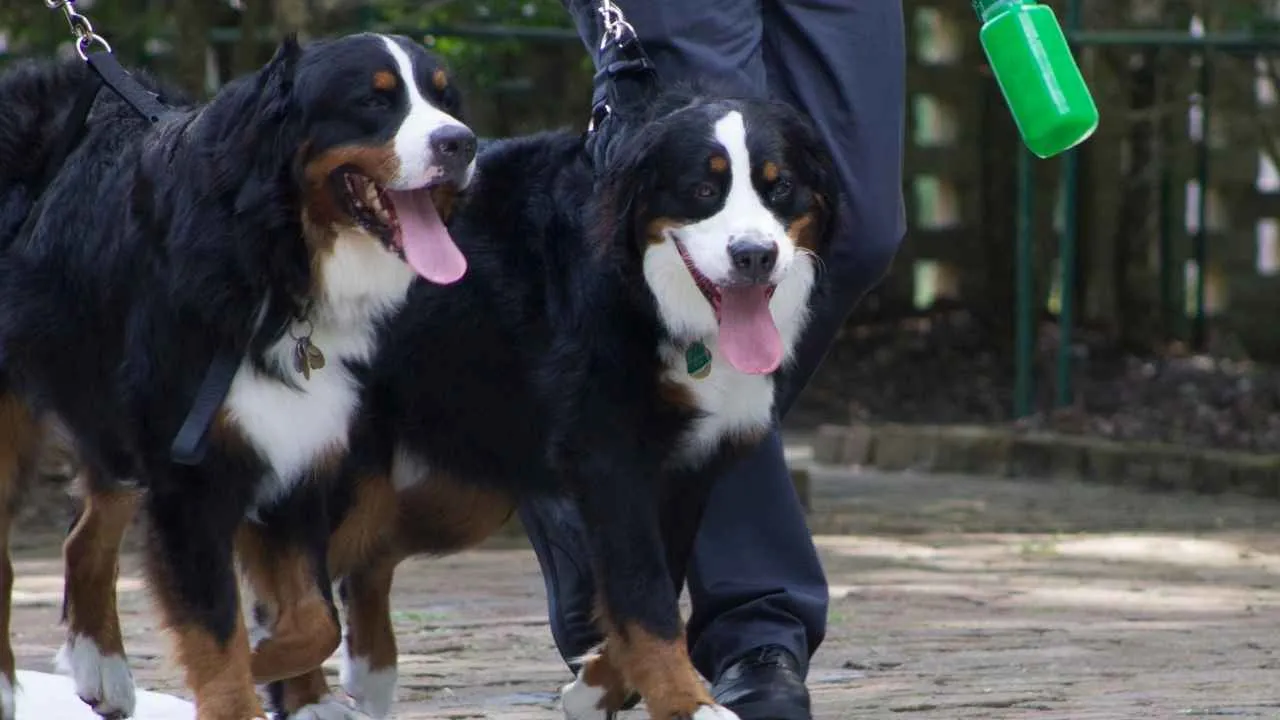
Bernese Mountain Dogs aren’t vocal giants. These fluffy titans are known for their mellow temperaments and quiet nature. They’re the type to observe first, bark maybe… or maybe not at all. Silence really is their comfort zone.
They’re great with families, especially kids, and they’re impressively tolerant but affectionate and playful as well, says Britannica. A toddler can climb over a Berner like a jungle gym, and this dog won’t let out a peep. Their patience is unmatched, and that calm attitude spills into their quiet behavior across the board.
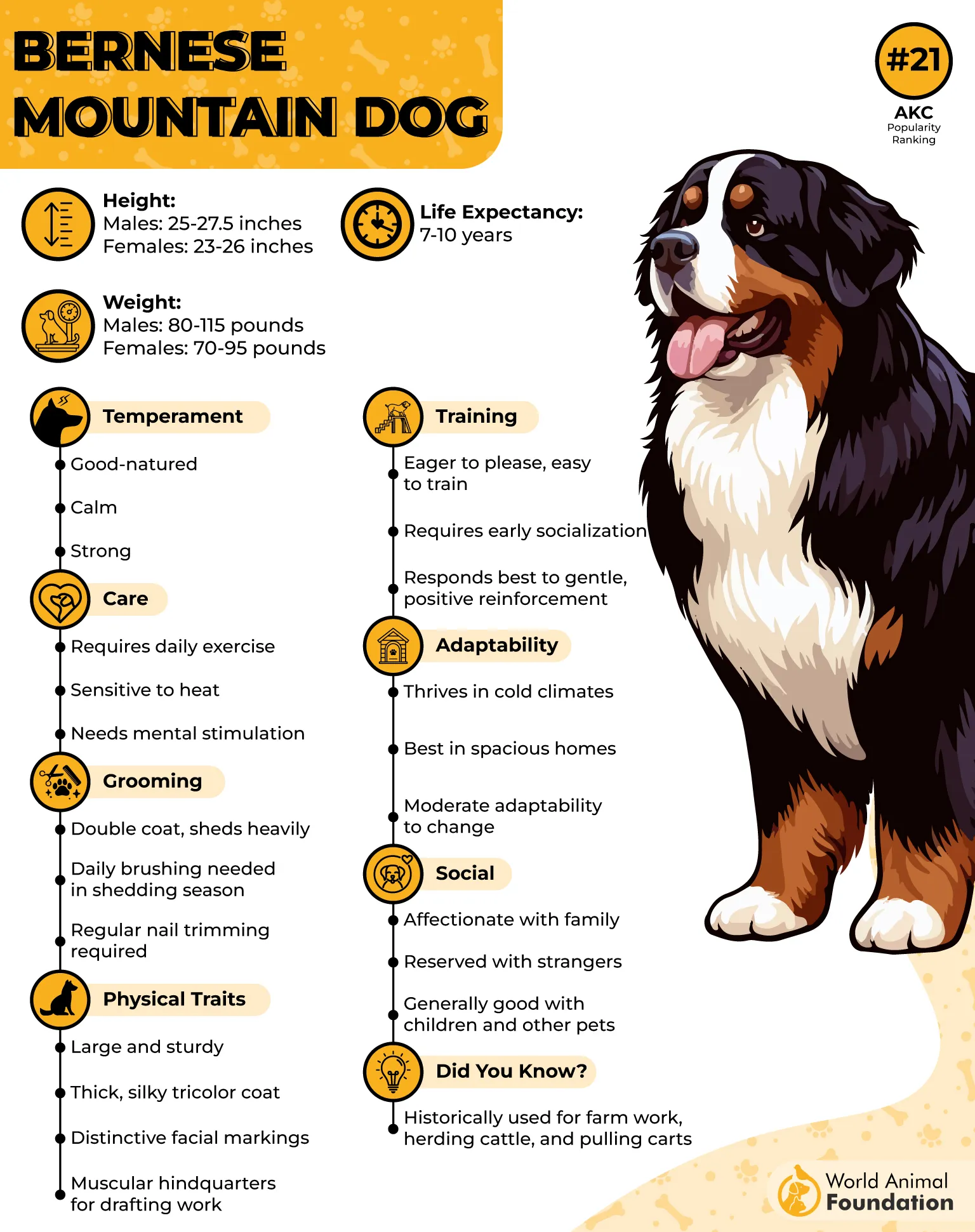
These dogs are also confident without being dominant. They don’t feel the need to “assert themselves” with barking. They know they’re huge, warm-hearted legends—and they carry that energy with grace. Honestly, what’s more reassuring than a dog who’s both strong and serene?
Berners are often described as emotionally in tune. If their human is stressed or sad, they’re more likely to silently snuggle up than bark or fuss. It’s that emotional depth, paired with their gentle nature, that makes them excellent therapy and companion dogs.
They also do well in quiet environments. While they enjoy the outdoors, they’re not the kind to bark at every squirrel in sight. They’ll notice, sure—but more with curious eyes than a noisy outburst. Big yard or small home, they bring peace wherever they go.
Fun fact: Despite their Swiss heritage and love for snow, Bernese Mountain Dogs are famously sensitive to heat. You’ll often find them sprawled out on tile floors in the summer, silently protesting the weather with their “I’m melting” face. No barking—just big drama in slow motion.
Conclusion
If you’re searching for low-barking dog breeds that offer peace and quiet without compromising companionship, you’re in luck. Some quiet dog breeds—like the Basenji, famously known as a barkless dog, or the Whippet and Greyhound, which are pretty quiet despite their speed—are ideal for apartment dwellers and anyone dealing with a noise ordinance. These breeds have a low tendency to bark and rarely vocalize unless there’s a potential threat or they sense danger. The French Bulldog and Cavalier King Charles Spaniel also make this list thanks to their calm, affectionate personalities and gentle natures.
Interestingly, some hunting dogs and guard dogs, such as the Rhodesian Ridgeback and Scottish Deerhound, are also known to be generally quiet despite their watchful instincts. They only bark when truly necessary—say, at the sound of a strange door creaking or an unfamiliar stranger passing by. The Great Dane, another gentle giant, may look imposing, but is surprisingly quiet, making it well-suited for apartment living—if space allows. Even the quirky Shiba Inu, though sometimes stubborn, has a reputation for being quiet, aside from its unique yodeling sound.
Of course, training, proper exercise, and fulfilling grooming and affectionate needs play a key role in keeping these dogs content and calm. A quiet dog doesn’t mean a low-maintenance pup—even small dogs like the Shih Tzu or lap-loving breeds like the Cavalier King Charles Spaniel thrive best when their exercise needs are met and they feel secure in their environment.


